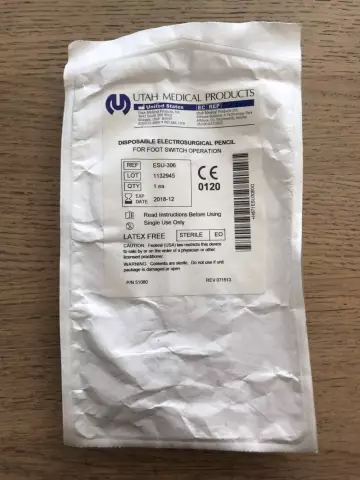- Author Rachel Wainwright wainwright@abchealthonline.com.
- Public 2023-12-15 07:39.
- Last modified 2025-11-02 20:14.
Life test
Life test is a name that unites methods for establishing live birth (birth of a child with signs of life) during a forensic examination of a newborn's corpse:
- hydrostatic life test - which consists in identifying air in organs, based on their ability to float to the surface of the water when immersed;
- gastrointestinal life test (synonyms: gastrointestinal test, Breslau test) - a hydrostatic life test with the organs of the gastrointestinal tract, based on the fact of air penetration into them due to its swallowing at the beginning of extrauterine life; obligatory when determining live birth;
- pulmonary vital test (synonyms: pulmonary test, Galen - Schreier test) - hydrostatic vital test with a whole lung or one of its parts; obligatory when determining live birth;
- optical life test (synonym: optical test) - the fact of live birth in which it is established by the presence of a specific marble appearance of the lung surface;
- ear test (synonym: ear test) - the fact of live birth in which it is determined by the presence of air in the tympanic cavity and auditory tube.
Found a mistake in the text? Select it and press Ctrl + Enter.






